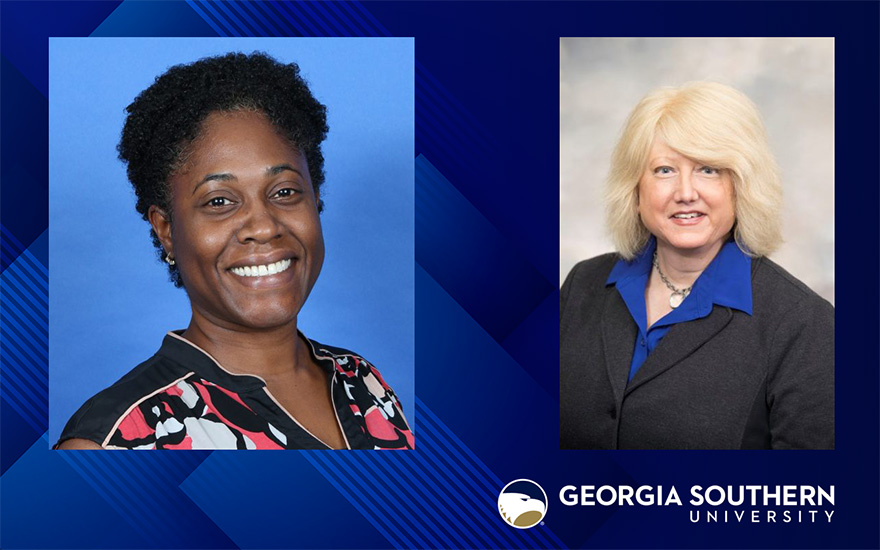A pair of Georgia Southern University professors and their research team are working to develop new options to help the estimated two million new cases of cancer that are expected to be diagnosed in the U.S. this year.
Karelle Aiken, Ph.D., professor of organic chemistry, and Jannet Kocerha, Ph.D., assistant professor of chemistry, are using a $424,000 grant to pursue new cancer drug treatments. This is the first time Georgia Southern has received a grant from the National Cancer Institute.
“The exciting research being done by Drs. Aiken and Kocerha is cutting-edge and aligns perfectly with Georgia Southern’s public impact mission to produce innovative ways to solve modern problems,” said Provost and Executive Vice President of Academic Affairs Carl Reiber, Ph.D. “This grant validates their extraordinary efforts, and I applaud them for their hard work and dedication.”
Current anti-cancer therapeutics are plagued by issues such as selectivity in which the drugs also attack healthy cells, poor intake into cancer cells and drug resistance that develops over time.
The goal is to overcome various barriers that impact the effectiveness of cancer therapeutics by exploiting a cancer cell’s dependency on unusually high levels of amino acids nutrients.
“Cancer cells compared to healthy cells grow really rapidly and they have a higher need for nutrients,” Aiken explained. “What we’re thinking of doing is taking compounds that we know have some toxicity to cancer cells and then masking them as a nutrient that they would need. That will make the drug even more attractive for the cancer cells to ingest them.”
Aiken and Kocerha said they hope the research will bring hope to those fighting incurable forms of the disease and other aggressive types of cancer.
The research will also offer full-time positions to Georgia Southern students. For three years, the grant will fund stipends to two undergraduate students and one graduate student to assist in the work.
“A big part of the grant is about training the next generation of scientists,” Kocerha said. “Georgia Southern has a strong culture of involving students in the whole research. Not just the design, but also in coming together and working directly with the faculty on developing publications, doing presentations at national meetings and learning how to communicate science to the broader audience.”
GSU



